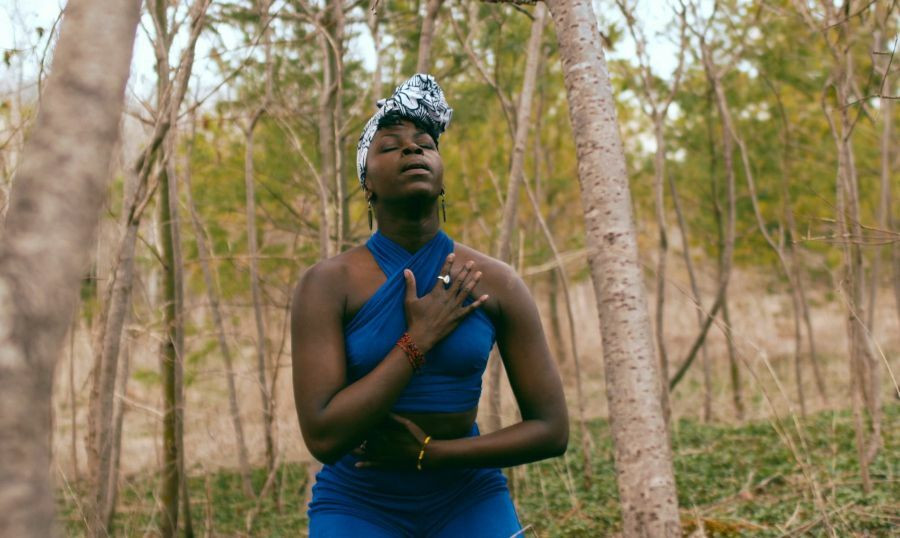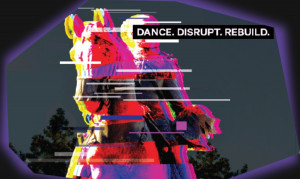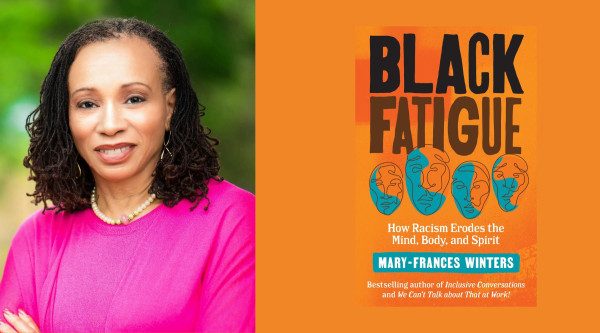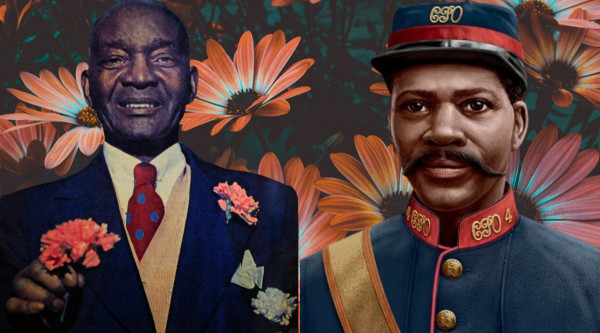Its title comes from the short form of the word “tessellation”, which describes a shape repeated over and over again covering a plane without any gaps or overlaps. It symbolizes the pattern of racism perpetrated against Black people. The film, directed by professional dancer and Dora-nominated choreographer Esie Mensah, is a national initiative co-commissioned by Fall For Dance North and The Harbourfront Centre. TESSEL will premiere across Canada on June 1, 2021, on the first anniversary of Blackout Tuesday.
“If you listen to the conversation of 14 artists over the course of 10 minutes, you’ll know of the reality that some people face in their arts,” says Esie Mensah. “Their bodies can help move that conversation forward.”
The film borrows inspiration from the violence inflicted on Black bodies, including the death of George Floyd in 2020. Like many Black people watching or hearing of these incidents, Mensah went through a rough patch last year. The experience led her to believe that other artists were probably going through the same experiences and needed a space where everyone could talk and hear each other. That is how TESSEL was born.
“What does change really look like?” asks Mensah. “Even though people were celebrating the fact that George Floyd’s killer was put behind bars, there were no legislative changes that came about from that. If you’re not going to bring about legislative change to work with this group of people and create a safe space to understand and make better life experiences for them, then what is your change really about?”
It's always been Mensah’s objective to create a space for people to communicate and understand each other. TESSEL is Mensah’s way of sparking conversations about racism in an artistic way by using dance to unpack the racism that Black people experience in their daily lives.
In the film, Mensah and 14 other Black artists dance their authentic truth in their unique styles and share their stories. Each artist was selected based on location and style to showcase the diversity of Blackness and Black artists.
“We carry our ancestors with us, so when we are speaking we are speaking with the voices of our ancestors,” says Mensah, who believes this way of thinking channels more power into her project.
Among the key issues addressed in the film are ritual, rage, exhaustion, self-care, rest, honesty in conversation, healing, and futurism. That said, its contents can be broken down into two basic ideas: protection and ritual – dance as an art and tracing its African origins.
“As Africans, our first interactions with dance were through spiritual practices which is the beauty of dancing,” explains Mensah. “It can allow us to protect ourselves from the world and escape.”
TESSEL explores the importance of acknowledging the spirit while understanding the ways that spirit can be broken through traumas occurring in the world. It also begins a conversation about where we’re headed in the future and amplifies the need for rest and self-care as we push for positive change.
“Our ancestors didn’t get an opportunity to rest,” says Mensah. “But in this particular time, we need to remind ourselves that although the fight needs to be ongoing, we can be of service in those situations only if we are our best selves. We have to take care of ourselves.”
Mensah sees the film as an opportunity for people to connect with themselves differently and hopes for honest feedback from her audience.
“I think this is an opportunity for us to learn as a community, as individuals, as artists, and as citizens,” says Mensah, who asserts the film is primarily aimed at the Black community but no one is excluded from the conversation. “I think that there's something powerful from this film that can benefit the community around us.”
About Esie Mensah
Esie Mensah is a Toronto-based Canadian of Ghanaian descent. Born and raised in Hamilton, Mensah has been involved in dancing since childhood. She was first introduced to dance through traditional Ghanaian dancing. Later, she learned different dancing styles and studied dance at George Brown College.
Mensah believes that dancing gave her foundation, purpose, and the ability to find herself and her ancestors. “I also believe that it opened up many doors to help me understand who I am and who I could become,” explains Mensah.
Later, she got into retraining and traditional West African dance routines. She began to study styles from Mali and Guinea. These experiences changed her relationship with movement and helped her gain an understanding of the origins of movement itself.
“When I was studying movements from Guinea, I recognized that this is where dancing originated and this renewed my connection to it, which is something I hadn’t experienced before.”
Mensah wanted to recreate that feeling with everything else in her life. She wanted a blend of traditional and commercial dancing styles. This led to the development of a unique style of dancing called Afro-Fusion, a mix of traditional African dance and contemporary movement. She believes this is the style that fits with Black dancers.
“My Afrofusion brought everything under the same umbrella and gave me the freedom to create and express what I wanted with my body in ways that allowed me to celebrate,” explains Mensah.
As a person of colour, Mensah’s journey to success didn’t come easy. She experienced shadeism in her life and career at different times. She has been on the receiving end of derogatory statements like “You're so talented but your skin… if only it wasn’t so dark.”
Despite being denied opportunities due to the colour of her skin, Mensah always kept an upbeat attitude and stayed in high spirits.
“Such comments definitely broke my spirit, but didn't break me to the point that I wanted to quit,” Mensah says. “I always found a way to rise above it so high that no one could ever tell me that I'm too dark for an opportunity. I can stay true to myself and also create an environment where other people can also stay true to themselves.” She now owns Esie Mensah Creations and is Director of The Black Stars, creating growth opportunities for other artists.
Mensah says that a lot has changed in terms of racism and discrimination since she joined the industry 15 years ago, but it hasn't changed enough.
“I can only attest to change when I see and feel it. This is not just a one-time thing. It requires our constant commitment to bringing about the kind of change that we want to see,” says Mensah.
Also, Mensah isn’t happy that many people don't see dancing as an art. She wants to shake up the idea of how people view dancing and expand upon it so that people can understand it can bring about progress and positively change the world.
“People would often subconsciously talk down to me after learning that I am a dancer which isn’t something that I was going to tolerate,” says Mensah. “I started changing how I looked and presented myself so that people couldn't confine me into a narrow definition of dancing.”
Despite all her professional accolades, Mensah views TESSEL as her biggest accomplishment to date. “I believe it is my biggest accomplishment because it took the most work,” says Mensah. “It gave me a chance to really lean into who I am, my vision, and what it is that I can create.”
On June 10, 2021, Mensah will discuss the inspiration behind her new film, TESSEL, in a Zoom meeting hosted by Toronto’s Dance Immersion.

 By
By 








